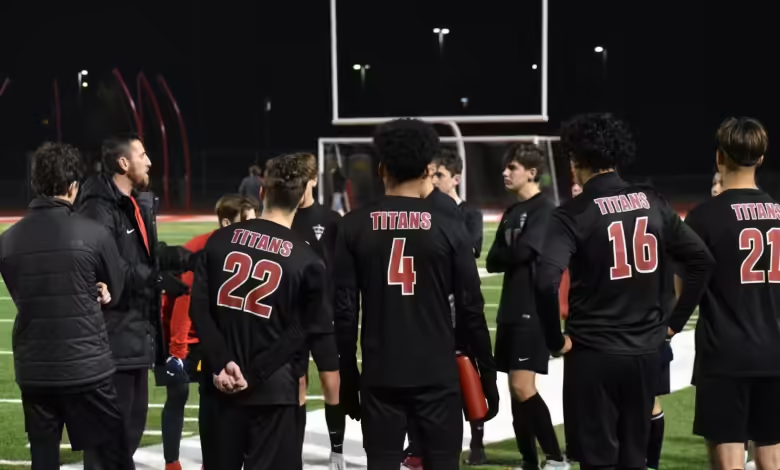A Detailed Guide to Coordinating Transportation and Logistics for Sports Teams

Coordinating transportation and logistics for sports teams involves intricate planning and organization. Whether you’re overseeing a local youth league or a professional team, it’s essential to ensure travel runs smoothly.
Effective management of travel details can significantly impact team morale and overall performance. Good logistics management adds to a satisfying experience for workers and players alike.
With an emphasis on crucial topics like scheduling and vehicle selection, we will offer crucial advice for efficient team travel coordination in this article.
Planning and Scheduling
The cornerstones of a good team travel itinerary are efficient scheduling and preparation. Make a thorough travel schedule beforehand, including the hours of departure and arrival, the specifics of the route, and any breaks for rest.
To prevent any misunderstandings at the last minute, make sure that all team members are notified well in advance. Include buffer times to account for unforeseen halts or traffic delays. Week Plan states that a good rule of thumb is to add 10-15% more time than the expected duration.
Coordinating with local accommodations and ensuring that transportation aligns with game schedules or event timings is crucial. A well-structured plan not only keeps the team on track but also minimizes disruptions and maximizes focus on performance.
Choosing the Right Vehicle
Selecting the appropriate vehicle is key to ensuring comfort and efficiency during travel. Consider factors such as the size of the team, amount of equipment, and travel distance when choosing a vehicle.
Options include buses, charter vans, and SUVs. Buses provide ample space and comfort for larger teams, while smaller charter vans offer flexibility for smaller groups. Ensure the vehicle you choose has adequate storage for sports gear and personal belongings.
Comfort features, such as reclining seats and climate control, can significantly enhance the travel experience, contributing to a more relaxed and focused team.
Sprinter Vans for Team Travel
Sprinter vans are increasingly popular for sports team travel due to their versatility and convenience. These vehicles offer a spacious interior that can comfortably accommodate team members and their equipment. Eminent Limo notes that with customizable seating arrangements and ample cargo space, sprinter vans can be tailored to meet your specific needs.
Additionally, they provide a more flexible and cost-effective option compared to larger buses or multiple SUVs. Features such as advanced climate control and entertainment systems enhance comfort, while the ability to park in tighter spaces adds practicality.
An example of effective team travel coordination can be seen with a basketball team traveling from Chicago for a crucial game.
ONE37pm ranks Chicago as #2 on their list of top 15 sports cities in the United States. The post mentions that The Bulls is a legendary team in the NBA, known for their rich history and passionate fan base. With such a reputation, ensuring smooth and efficient travel logistics is vital for maintaining the team’s focus and performance level.
The travel coordinator creates a detailed itinerary, including departure times, route planning, and accommodation arrangements. Given the size of the team and their equipment, a comfortable and spacious vehicle is essential. For this reason, Sprinter van rentals in Chicago become an ideal choice.
These rentals provide the necessary space and comfort, ensuring that the team arrives at the game refreshed and ready to perform. The flexibility of sprinter vans also allows for easier navigation and parking in cramped urban environments, making the overall travel experience more manageable.
Managing Team Logistics
According to a 2024 post by FedEx, the opening ceremony of the Olympics alone illustrates the extensive logistical effort needed for global sporting events. These events demand the distribution of enormous amounts of materials across the globe, typically within a short timeframe. Effective logistics are essential for the smooth execution of both the opening ceremony and the ongoing competition.
The same is true on a smaller scale for local and regional sporting events. Even these events require careful planning and coordination to manage the distribution of equipment, schedules, and accommodations. Efficient logistics ensure that all aspects of the event run smoothly, contributing to a successful and well-organized experience for participants and spectators alike.
All parties engaged in logistics management must coordinate and communicate well for it to be effective. Designate a travel coordinator to oversee arrangements and act as the primary point of contact. Keep everyone updated on changes by using technology, such as travel management software or group messaging applications.
Finally, ensure that all team members understand their tasks, such as time of arrival, packing requirements, and behavior while traveling. By establishing a communication plan and using organizational tools, you can streamline logistics and address any issues promptly, ensuring a smooth travel experience.
FAQs
What are the benefits of planning and scheduling?
Efficient planning and scheduling facilitate task organization, optimize processes, and guarantee punctual completion. Teams can boost overall productivity and prevent last-minute problems by establishing explicit deadlines and milestones. In addition to lowering stress, careful planning facilitates more efficient resource allocation.
What is the meaning of a visiting team in sport?
A visiting team in sports is a team that travels from their home base to compete in an away game. They play against a host team at the host’s venue. The term distinguishes them from the home team, which is based on the venue of the competition.
What is the role of logistics in sports?
Logistics in sports involves managing transportation, equipment, and schedules to ensure the smooth operation of events and team activities. It includes arranging travel, accommodation, and coordination for both teams and officials. Effective logistics support optimal performance and operational efficiency during sports events.
Successful sports team travel hinges on meticulous coordination and execution. Organizations can maximize team performance and morale by prioritizing detailed planning, vehicle selection aligned with team needs, and robust logistics management.
The strategic use of technology and clear communication channels further streamline operations. Ultimately, a well-orchestrated travel experience contributes significantly to a team’s overall success, both on and off the field.
